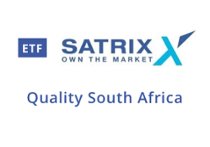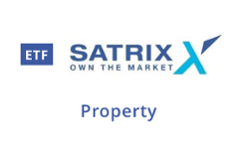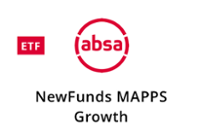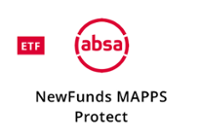Intellidex Reviews for June 2018
ETFs struggled during May with an equally weighted portfolio of the 60 ETFs that reported returns losing 2.32%. Local-asset ETFs performed poorly while the international ones were positive.
The poor performance of equities mirrors economic data which has been largely disappointing. Although inflation came in lower than expected, the continued rise in the fuel price and the weakening rand could trigger monetary authorities to raise interest rates to tame inflationary pressures.
The local view
The see-saw theme that has characterised the local equities market since 2014 continued in May with the all share index reversing gains of the previous month to contract 3.5%. The top 40 index –the universe for most of the local equities ETFs – retreated 3.1%.
Only resources shares continued with April’s upward momentum. The two funds that invest in the sector, Satrix Resi 10 and S&P Givi Resi, rose 4.1% and 3% respectively.
Bond funds were muted and edged up marginally with all ETFs in the category returning less than 0.1%. And the only money market ETF gained 0.6%.
Credit rating agency Standard & Poor’s maintained SA’s sovereign credit ratings but remains worried about the poor growth numbers. These worries were accentuated by the surprise 2.2% shrinking of the economy in the first quarter. Exacerbating SA’s economic picture is the recent three-year public sector wage agreement which exceeds by R30bn the R110bn provision for salary adjustments made in the 2018 Medium Term Expenditure Framework.
While the “Ramaphoria” effect has come to a screeching halt, it does not mean the sky is falling but it makes the need for economic reforms more urgent.
The international view:
Most international funds closed May in positive territory. The best performances came from the CoreShares S&P500 and newly listed Stanlib S&P500 – they track the S&P500 and climbed 6.3% and 8.5% respectively. These metrics correlate with positive economic indicators coming out of the US reflecting expansion and jobs growth. The US Market flash manufacturing purchasing managers’ index (PMI) increased only marginally but hit 56.6 points, its highest level since September 2014. The services PMI increased to 55.7 from 54.6 in April.
However, Sygnia’s EuroStoxx50 fund was clobbered, falling 4.5% and its MSCI Japan ETF lost 0.6%. This is in line with disappointing Eurozone and Japan April PMI readings.
The Trump-sparked trade war is accelerating, which is weighing on most global markets. The higher tariffs imposed by the US, mainly on steel and aluminium imports, are particularly affecting China, but also its North American Free Trade Agreement (Nafta) and eurozone partners. A “tit-for-tat” approach could change the face of global trade policy and ultimately weigh on global growth.
ETFs featured
International:
Satrix MSCI Emerging - Ashburton Global 1200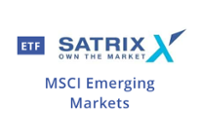 -
-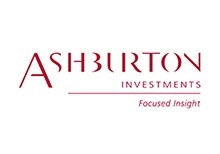
We also split international equities into developed and developing markets:
Less than a year old, this fund returned 2.7% in May, buoyed by US stocks which command the lion’s share of this globally diversified fund. Europe and Japan disappointed.
The choice in this segment is limited to two funds: Satrix MSCI Emerging Markets (-1.98% in May) and the Cloud Atlas AMI Big50 (-1.87% in May). Our choice for Satrix MSCI Emerging Markets is motivated by its diversification. The fund provides exposure to high-growth economies such as China and India, which are not included in any of the developed market funds, thus offering further diversification.
Domestic:
Satrix SA Quality remains our choice but it has performed poorly in the past few months, declining 7% in May. From the big batch of domestic broad-based equity funds on offer, we like this ETF because it reduces the concentration risk that has come to dominate the top 40 index because it caps the weight of each counter and sector.
Bonds and Cash:
NewFunds TRACI 3 Month - Satrix ILBI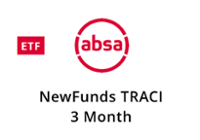 -
- 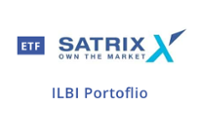
NewFunds TRACI 3 Month - (short term pick) it a natural choice because it is least sensitive to sudden adverse interest rate movements.
Satrix ILBI ETF - (long term pick) for a longer investment horizon, protecting your investment against inflation is paramount. Less than a year old, it promises to have the lowest expense ratio of 0.22% compared with peers. It edged up by 0.08% in May.
Dividend:
If you rely on your investment income for day-to-day expenses you may want to allocate a portion of your portfolio to ETFs that have a high distribution ratio. Naturally, Satrix Dividend Plus and CoreShares S&P South Africa Dividend Aristocrats come to mind here, but similarly, property funds are high dividend payers. We maintain our choice of the capped fund Satrix Property ETF. The fund has an expected TER of 0.30%, which makes it the cheapest in the segment. The property sector has fallen on hard times lately but we believe that is temporary. The Satrix Property fund made a loss of 4.11% in May.
Multi-Asset:
NewFunds Mapps Growth - NewFunds Mapps Protect
If you find the process of diversifying your portfolio daunting, these two ETFs do it for you. They combine equities and bonds to produce a diversified portfolio for two investor archetypes. They are designed to meet two different risk appetites:
Protect is more conservative, suitable for conservative savers.
Growth suits investors with a long-term horizon.
Mapps Growth and Mapps Protected lost 3.7% and 2.1% respectively during May.
New international ETFs
The surge in the listing of international-asset ETFs continues, with Stanlib and Satrix the latest firms to add to the menu. Satrix’s themes are already covered by other listed funds in some form, but Statrix's Nasdaq 100 ETF is of particular interest. The fund is made of the 100 largest companies listed on The Nasdaq Stock Exchange based on market capitalisation.
The Nasdaq is known to accommodate smaller companies that do not meet requirements of other exchanges. It is also tech-heavy. Unlike other international indices such as the S&P 500 and MSCI US, it gives a lot of weight to technology companies.
You can read up more on Intellidex's insights on international-themed ETFs, market summary, investment strategies, graphs, and June 2018 picks here
Background: Exchange-traded funds (ETFs)
Exchange-traded funds (ETFs) are passively managed investment funds that track the performance of a basket of pre-determined assets. They are traded the same way as shares and the main difference is that whereas one share gives exposure to one company, an ETF gives exposure to numerous companies in a single transaction. ETFs can be traded through your broker in the same way as shares, say, on the EasyEquities platform. In addition, they qualify for the tax-free savings account, where both capital and income gains accumulate tax free.
Benefits of ETFs
- Gain instant exposure to various underlying shares or bonds in one transaction
- They diversify risk because a single ETF holds various shares
- They are cost-effective
- They are liquid – it is usually easy to find a buyer or seller and they trade just like shares
- High transparency through daily published index constituents
If you thought this blog was interesting, you should also read:
Intellidex Reviews: ABSA NewFunds S&P Govi SA Industrial 25 ETF
Disclaimer
This research report was issued by Intellidex (Pty) Ltd. Intellidex aims to deliver impartial and objective assessments of securities, companies or other subjects. This document is issued for information purposes only and is not an offer to purchase or sell investments or related financial instruments. Individuals should undertake their own analysis and/or seek professional advice based on their specific needs before purchasing or selling investments. The information contained in this report is based on sources that Intellidex believes to be reliable, but Intellidex makes no representations or warranties regarding the completeness, accuracy or reliability of any information, facts, estimates, forecasts or opinions contained in this document. The information, opinions, estimates, assumptions, target prices and forecasts could change at any time without prior notice. Intellidex is under no obligation to inform any recipient of this document of any such changes. Intellidex, its directors, officers, staff, agents or associates shall have no liability for any loss or damage of any nature arising from the use of this document.
Remuneration
The opinions or recommendations contained in this report represent the true views of the analyst(s) responsible for preparing the report. The analyst’s remuneration is not affected by the opinions or recommendations contained in this report, although his/her remuneration may be affected by the overall quality of their research, feedback from clients and the financial performance of Intellidex (Pty) Ltd.
Intellidex staff may hold positions in financial instruments or derivatives thereof which are discussed in this document. Trades by staff are subject to Intellidex’s code of conduct which can be obtained by emailing mail@intellidex.coza.
Intellidex may also have, or be seeking to have, a consulting or other professional relationship with the companies mentioned in this report.
Subscribe To Our Research Portal
Search all research
Let Us Help You, Help Yourself
From how-to’s to whos-whos you’ll find a bunch of interesting and helpful stuff in our collection of videos. Our knowledge base is jam packed with answers to all the questions you can think of.
